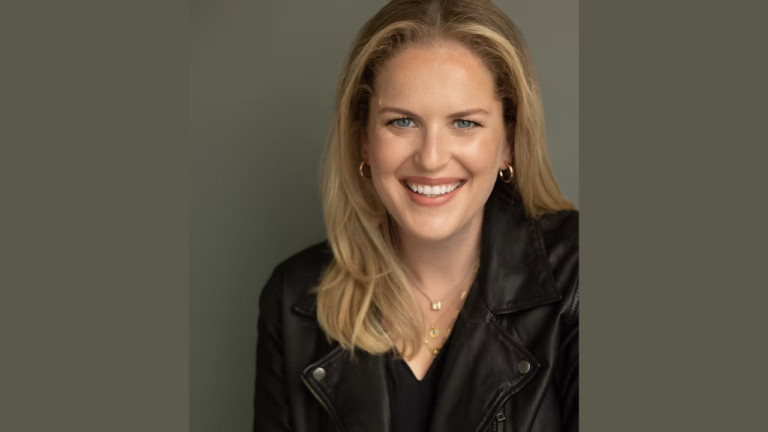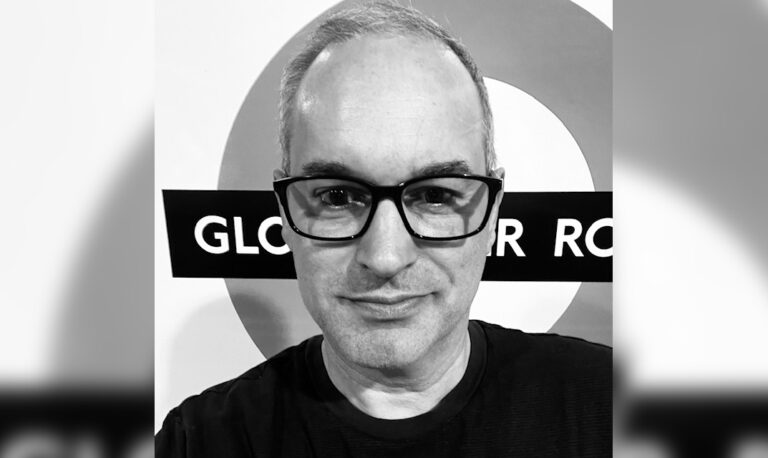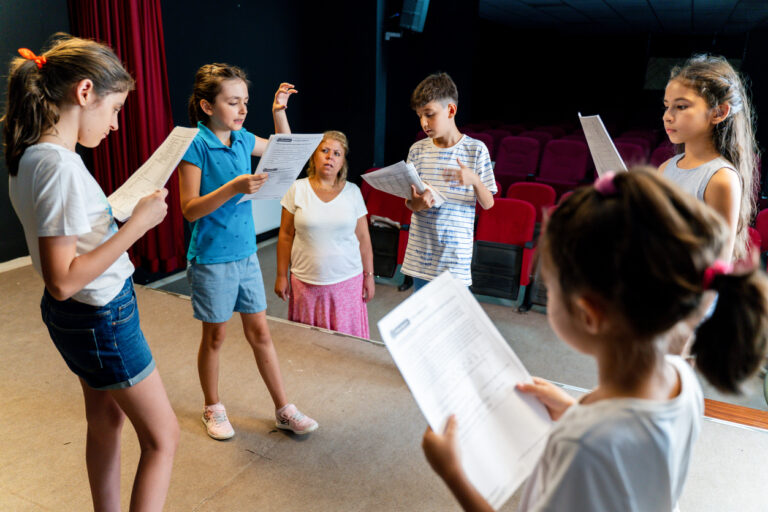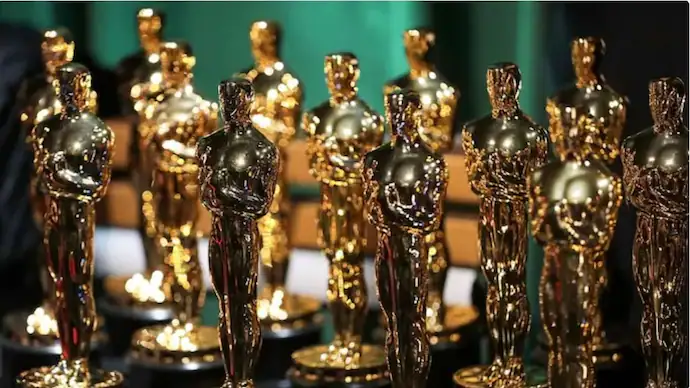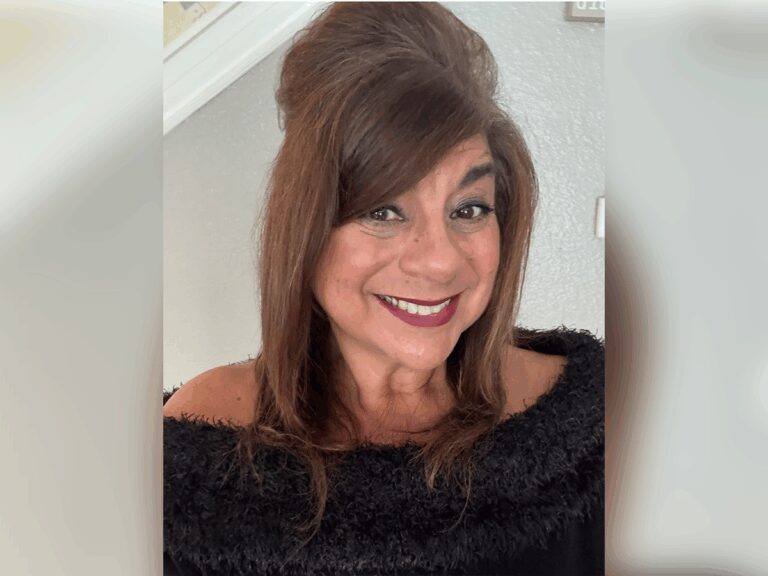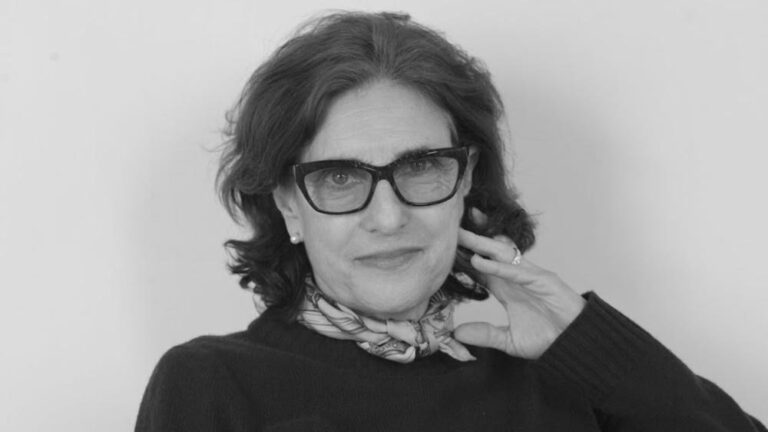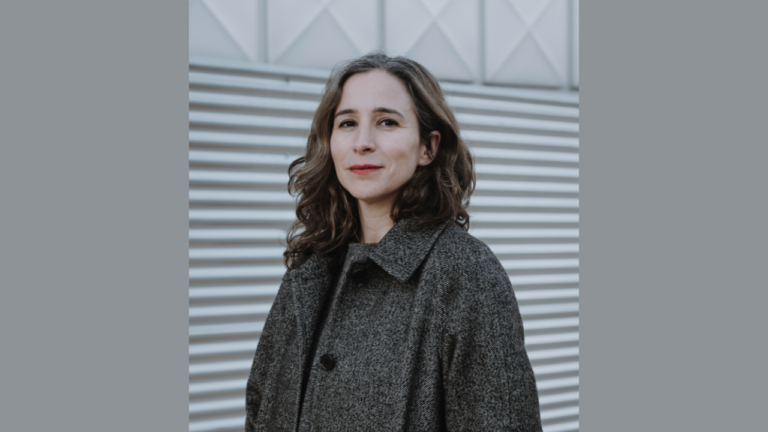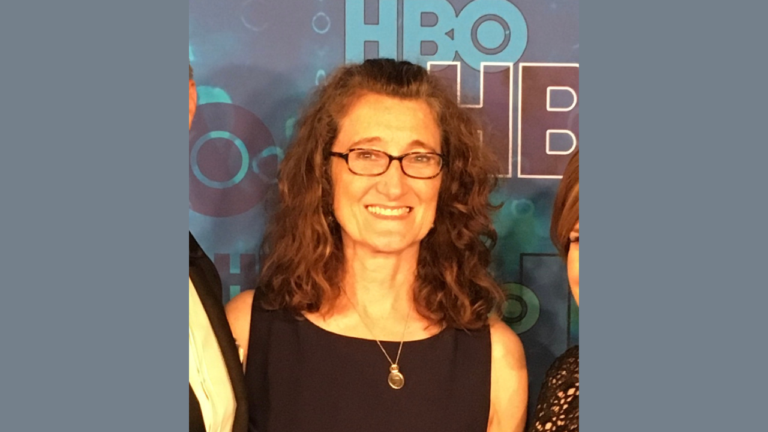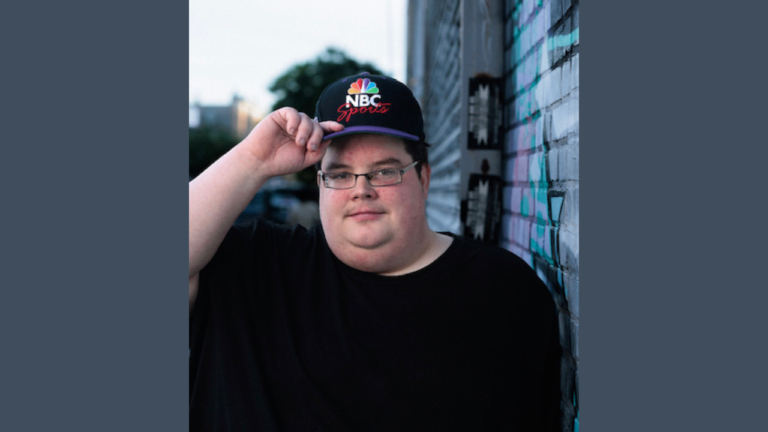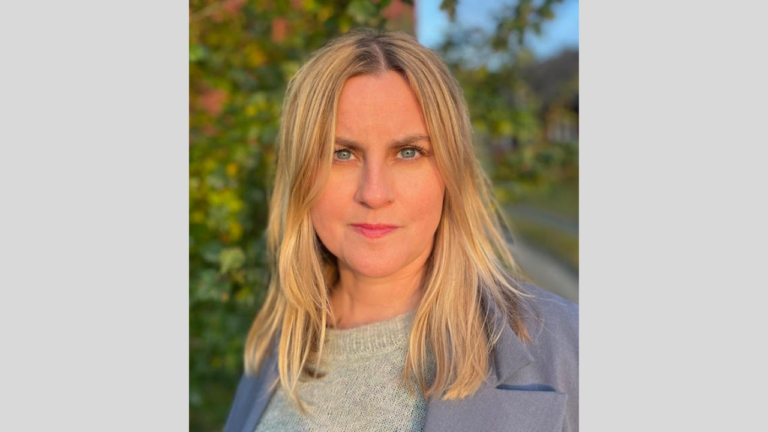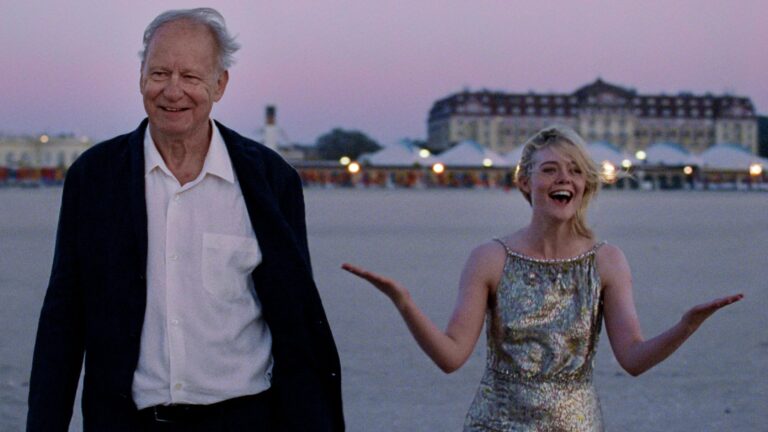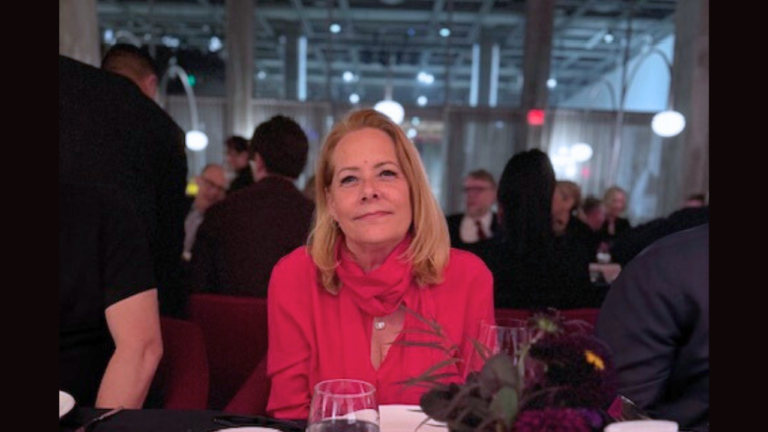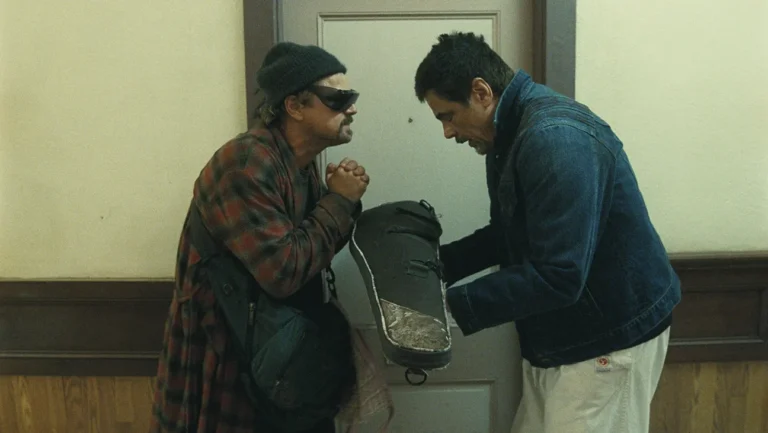Melissa DeLizia has already had a great summer, and that was before May even came to an end. Both of her latest projects, the dark comedy Friendship and the coming-of-age sex romp Summer of 69, dropped on the same day (Friendship in theaters, Summer on Hulu). Both have earned rave reviews, especially for DeLizia’s casting, and exemplify the work she does.
Operating mostly in comedy, she cast two of the funniest shows of the 21st century: Drunk History and Pen15. Other titles, such as True Story with Ed & Randall, the iCarly reboot and You Are So Not Invited to My Bat Mitzvah, further establish her standing as one of the best young casting directors working today. She took a break from casting a new project to chat with us from her office in Los Angeles.
Insights From Melissa DeLizia
- Always come to auditions fully prepared and know your material inside and out, as casting directors notice and appreciate the effort.
- Find ways to bring something unique and personal to your audition, showing what only you can offer to the role.
- Focus on authentic chemistry with scene partners during auditions, as genuine connections can make you stand out and lead to being cast.
Thinking about joining Casting Networks? Sign up for a free trial today!
How did you get started as a casting director?
I have always known I wanted to be in the entertainment industry since a young age. I grew up in Maryland watching TGIF. As a kid, you’re gathering around the TV on a Friday night to watch episodes of your new favorite show, and I was like, “I want to do that.”
Of course, I didn’t know what “that” was at the time; I just knew I wanted to be a part of making movies and TV, whatever that meant. My family happened to move to Los Angeles when I was a teenager, so I briefly dabbled in acting. However, when I was in high school, I took an internship with a commercial casting director, and I was quite enthralled with the whole process.
What was it that enthralled you?
It was just so magical to me.
Every actor who came in would deliver the same lines differently; a really good actor could change the entire tone of the scene. And to be a part of getting to make a decision, or getting to have that eye where you’re like, “Oh, that worked,” and “That didn’t,” and “Oh, I understand what the creatives want and this is not it” — it was truly special to sit back and feel like you were a part of the magic.
That moment of clarity, that realization that this is it, seems common among casting directors. To do this, you truly have to love it, right?
That’s what I always say when people ask me about getting into casting and want advice. Every time, I say, you have to love it.
If you don’t love it, pick a different career, because you’re going to dedicate so much of your life to this craft, and being a part of this, you have to love it.
How did you go from that momentous internship to becoming a casting director?
I went to college at Loyola Marymount University. I studied theater and communications, and then, upon graduation, I fell into PR because it was a job that was waiting for me. I quickly realized that was not the career for me, so I left that and got into casting. I guess the rest is history.
Did you work with one casting director, or did you move around some?
I was an assistant for about a year. Then I was an associate for a few years at different offices, which was pretty coo.
It gave me a chance to see several different casting directors’ points of view and how they ran their offices, what they liked, and what they didn’t like. I was able to take the best pieces from the various places and learn from them, and create my own office from that. I enjoyed working under several different people because I think it helped me grow quickly.
Are there particular things that you learned from anybody that are especially important to you, or is it more of an overall à la carte philosophy?
It’s an à la carte approach, but one phrase that always sticks in my head was from one casting director.
We were doing a series, and it was very stressful. He just walked into the room and said, “Don’t worry about it. Someone’s going to be on set. Someone’s going to be hired, somebody’ll be on set, and it’ll be all good.”
That has stuck with me forever, and I remind my own office of it when things are stressful. It’s just this calming phrase that has become my kind of mantra.
There are some great titles on your resume, especially Drunk History. I imagine you must get asked about that show a lot.
That show is what gave me a crash course in the comedy world. I credit Derek Waters and Jeremy Konner (the creators) with my comedy career.
Every comedian who ever existed was on that show, and it will always have a fond place in my heart. I hope we can figure out a way to bring it back. It will always be relevant and always be funny.
I imagine it’s accidental, but over the last few years, you’ve started working with kids a lot. Do you enjoy that kind of casting more than the other work you’ve done?
I like the mix. I have always loved coming-of-age stories, so I have a fondness for those kinds of films. I love working with kids, and getting the chance to break one out or discover one is a privilege.
There’s no other feeling like that. However, I also enjoy working with adults and in the comedy world. I’ve been fortunate enough to be able to do both consistently. Summer of 69 and Friendship came out on the same day, two completely different types of films, but very cool to be a part of both of them.
Let’s talk about Summer of 69. The chemistry between the two leads, Chloe Fineman and Sam Morelos, is phenomenal. From your perspective, when you put two people like that in a room, do you know right away?
You do feel it, yeah, and it’s magic. I get goose bumps just thinking about it, because it’s a magical moment. The actors feel it too.
Chloe was obviously hired first, and so we had her in the room doing chemistry reads with about five girls. The problem was that everyone was great, and we were wondering how we were going to make this decision.
When Sam came in, it’s not always about how great the other actress is, it’s like you said, it’s the chemistry between them. The two of them were just off the charts.
I remember when Sam left; Chloe was like, “Oh my God, she’s so amazing. She’s so great. I already care about her so much, and I want to protect her.”
Jillian Bell, the director, and I were like, “Okay, well, that was that.” You feel it, but then also getting to have one of the actresses in the room, all feeling it at the same time, you know this is going to be something special.
When you nail it like that, do you ever allow yourself a pat on the back and say, “Yep, I’m pretty good at this?”
(Laughs) I’m my worst critic. I’m always just like, “Okay, that was pretty good. We did pretty well. On to the next.”
I’m trying to be better at recognizing, “Oh, that was kind of cool,” or “That turned out well,” or “That was a success, and we found the right person.” However, I’m always my own worst critic.
Finishing up, what piece of advice or wisdom would you give to an actor coming in to audition for you?
I think there are two things that I usually take note of. One: actors who are prepared. You can see that they’ve put in a lot of effort on their material, and they know it inside and out.
The other is when an actor brings something different to the role. Part of them. Something that no one else can bring to the role, that’s only specifically related to them. No matter if it’s right or not, no matter if they get the role or not, I notice it and I appreciate it, and I remember them for other things. Bring a little part that’s you, bring a little part that no one else can do, because it’s just intrinsically you.
Final Takeaways
Melissa DeLizia has two acclaimed films premiering on the same day as her reputation as a top casting director continues to grow. In this interview, she reflects on her journey, her approach to casting, and the magic of finding the right actor for a role. Here are some highlights:
- DeLizia launched her career after a transformative high school internship, eventually learning from multiple casting directors before starting her own office.
- Her work spans acclaimed comedies like Drunk History and Pen15, as well as coming-of-age projects and kid-focused casting.
- She values actors who are both thoroughly prepared and able to bring something uniquely personal to their auditions.
- Chemistry between actors, as seen in Summer of 69, is something she can instantly recognize—and it’s often a deciding factor in casting.
- DeLizia encourages actors to love the craft, be resilient, and always bring their individuality into the room.
You may also like:
